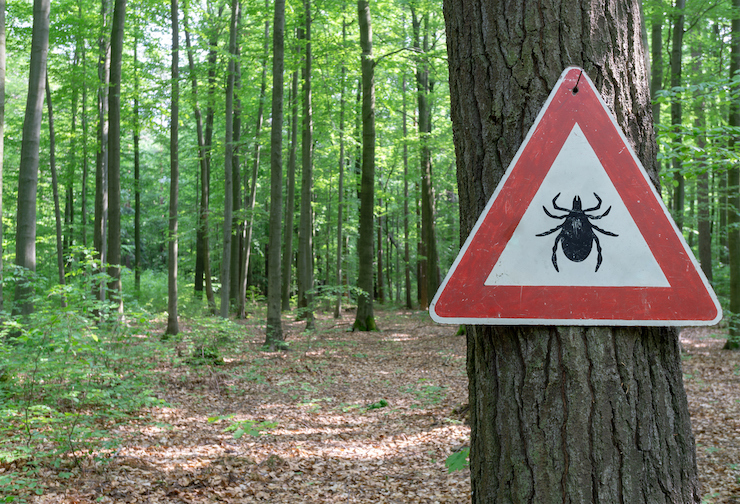Dr. Richard Marconi recognized for pioneering research on tick-borne illnesses
Internationally known for developing tests and vaccines for Lyme disease, Richard Marconi, Ph.D., received the Virginia Biotechnology Association’s Outstanding Contributions to Bioscience Award and was inducted into the American Academy of Microbiology.

Richard Marconi, Ph.D., is a professor and researcher in the Department of Microbiology and Immunology. (Photo by DeAudrea 'Sha' Aguado, VCU School of Medicine)
Richard Marconi, Ph.D., a professor in the Department of Microbiology and Immunology, has dedicated his career to understanding, treating and preventing tick-borne illnesses. This spring, Marconi received two significant accolades from professional organizations in his field: The Virginia Biotechnology Association selected him as one of its 2022 Outstanding Contributions to Bioscience Award recipients, and he was one of 65 scientists to be elected and inducted into the American Academy of Microbiology.
“It’s a rather satisfying feeling, for sure, to be recognized by Virginia Bio,” Marconi said. “And what’s really exciting about the academy is that the selection process is done by your peers in the world of science. To get recognition from your peers who are evaluating your contributions to science is humbling, to say the least.”
Dennis Ohman, Ph.D., chair of the Department of Microbiology and Immunology, emphasized the importance of Marconi’s research.
“The investigations being conducted in Dr. Marconi's laboratories occupy an important niche,” Ohman said. “Because of their pioneering efforts, clinicians are now in a position to offer more effective alternatives for both prevention and diagnostics. Both of these honors reflect the transformative nature of Dr. Marconi’s work.”
As he reflected on his achievements, Marconi recalled the moment in the spring of 1989 that changed the course of his career.
During an otherwise routine visit to a breakroom at the Roche Institute for Molecular Biology, Marconi, a postdoctoral fellow at the time, picked up an issue of Newsweek magazine. A magnified image of a deer tick spanned the cover, and the headline read: “Lyme Disease: A tiny tick is spreading a mysterious illness in 43 states.”
“As a postdoc, what I was really looking to do was to be productive, of course, but also to establish what I was going to work on independently for years,” Marconi said. “Prior to that, I knew nothing about tick-borne illnesses, and Lyme disease was intriguing to say the least.”
Lyme disease is the most common vector-borne disease in the United States, with the number of cases nearly doubling since 1991, according to the U.S. Environmental Protection Agency. This bacterial infection is transmitted from the bite of an infected deer tick and can cause symptoms such as rash, fever, headache and fatigue. If left untreated, the infection can spread to the joints, heart and nervous system.
Marconi has spent nearly 30 years at VCU conducting research into new ways to test for and prevent Lyme disease while also guiding students in his lab. In 2016, his Lyme disease vaccine for canines hit the market, and Marconi and his team have been working toward translating their efforts into a vaccine for humans. He hopes to begin clinical trials next year.
"It will likely be on the market within five years, which is a very exciting pace,” Marconi said. “The development of the COVID-19 vaccine has shown us that when the urgency is there and the resources are applied, science can do amazing things, and it can happen rather quickly.”


